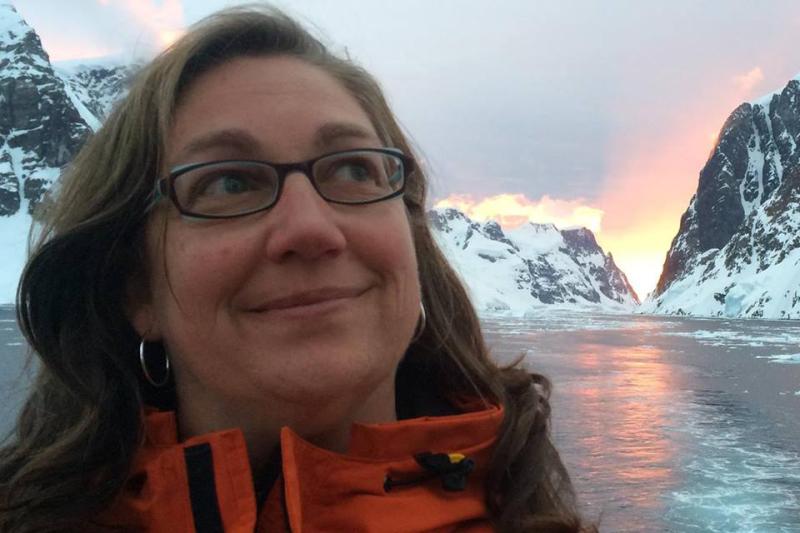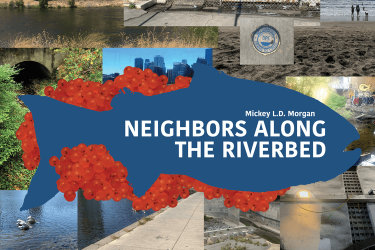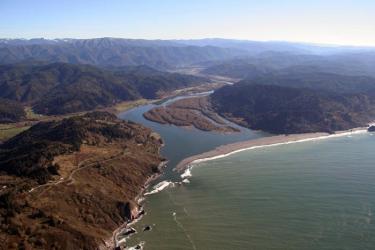What is your key responsibility?
I'm located in Seattle, Washington and work with partners throughout the Pacific Northwest, in the United States and in Canada. I wear a couple of hats. I'm the Seattle Branch Chief for the Protected Resources Division and also serve as the Recovery Coordinator for endangered Southern Resident killer whales. In spring of 2022, I’m also serving as the Acting West Coast Associate Deputy Regional Administrator.
I've been working on recovery of Southern Residents since they were listed under the Endangered Species Act in 2005. In 2011 I became a Branch Chief overseeing a variety of programs for marine mammals and other threatened and endangered species, like rockfish in Puget Sound.
What is your educational background?
I studied Biology as an undergraduate at Georgetown University, with a minor in Fine Arts. I also have an interdisciplinary Master's degree from San Diego State University where I studied animal behavior and did research on bottlenose dolphins. After graduate school, I spent a few years studying dolphins in Australia and worked on a variety of scientific studies.
Are you a member of community organizations, religious organizations, or volunteer/mentorship programs?
I've participated in several mentoring workshops as part of the Society for Marine Mammalogy to share my experience as a woman working in marine mammal science.
What does being a career civil servant mean to you?
There is a long tradition of public service with my parents and grandparents and being federal employees. It is an important connection to the values and history of my family.
Can you describe a typical day at work?
My days are always different. I work with a great team of NOAA colleagues and also with many different partners and stakeholder groups. My days include coordination with the research community, making difficult decisions about policies to conserve protected species, and reaching out to industry representatives, non-profit groups, and concerned citizens all working toward common goals to protect our ecosystem.
What are you working on now?
As part of the recovery program for endangered Southern Resident killer whales, I'm working on raising awareness about the whales through our Species in the Spotlight initiative. We recently developed an action plan to highlight the most important research and management efforts needed to support recovery. I also help promote a transboundary Be Whale Wise campaign to educate boaters about responsible wildlife viewing. I work with many partners, do media interviews, and give presentations to provide information on the threats the whales face and inspire stewardship by letting people know what they can do to help.
Can you describe a project you worked on that was particularly interesting or enjoyable?
One of the most amazing projects I've worked on was the rescue operation in 2002 to return a Northern Resident killer whale to her family in Canada. We captured A73, also known as Springer, who was alone in Puget Sound. We gave her a full health workup to make sure she could survive in the wild and wouldn't pose a risk to her family. She was a lively and, fortunately, healthy young whale and after 30 days in a net pen at a NOAA lab facility we brought her back up to her home waters. She was reunited with her family and since her rescue she has had two calves of her own (Spirit and Storm). It was a unique opportunity to learn about the whales and connect with so many of the people throughout the region who care about them.
Read more about Lynne’s experience rescuing A73, Springer





